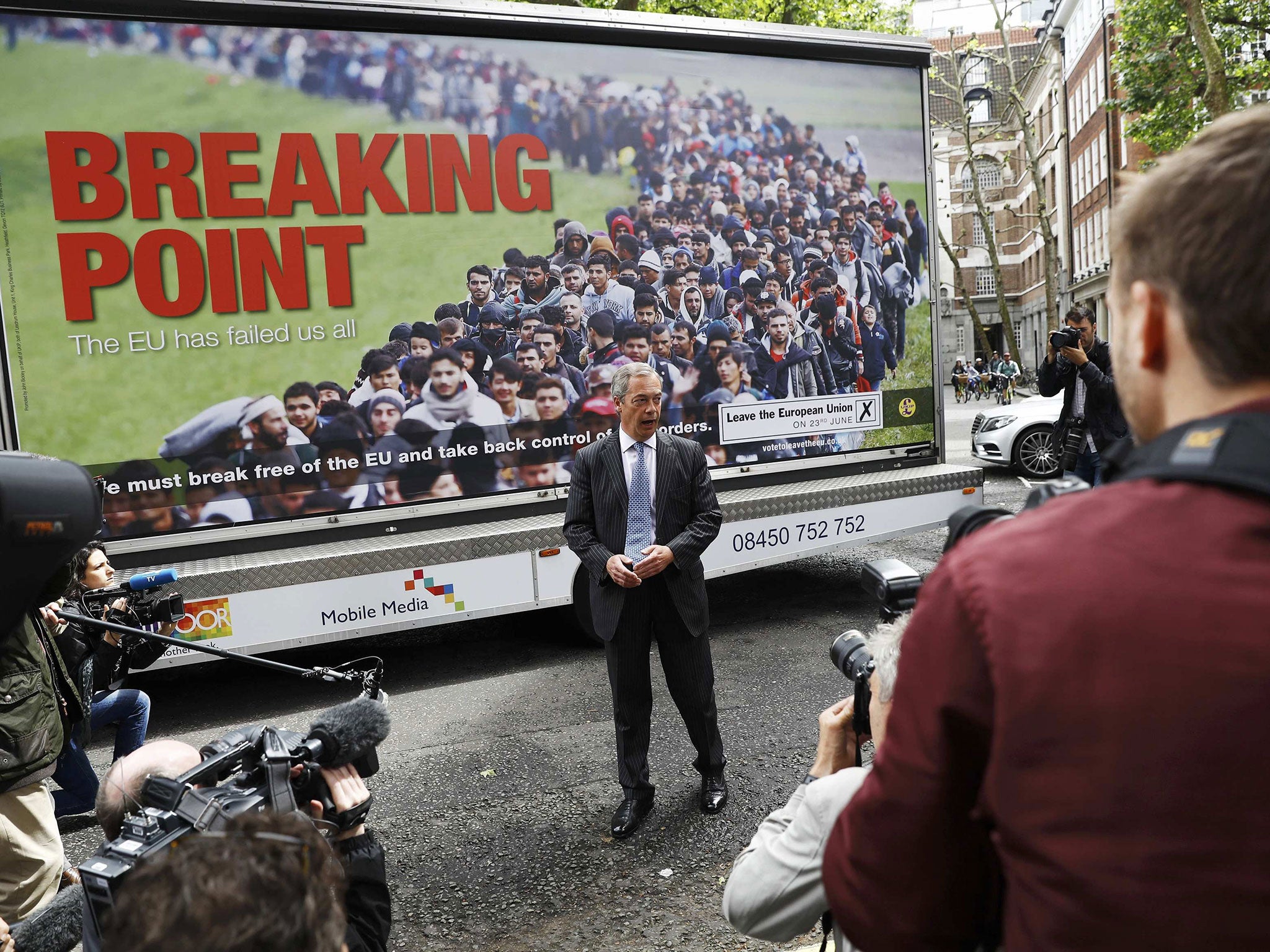Austerity risks eroding the rights of UK ethnic minorities, Council of Europe warns
Report also warns of rising levels of online hate crime and criticises politicians including Nigel Farage for engaging in ‘anti-immigrant rhetoric’

Austerity risks eroding the rights of ethnic minorities in the UK as money is diverted away from protecting them, the Council of Europe has warned.
The day after Chancellor Philip Hammond delivered his budget, the council published a report stating that: “Many persons belonging to minority communities still experience disparities in employment, wages, health issues, access to care and political representation.
“Austerity measures have exacerbated the situation.”
The council’s assessment of the UK’s compliance with the Framework Convention for the Protection of National Minorities (FCNM), also warned of rising levels of online hate crime and criticised politicians including Nigel Farage for engaging in “anti-immigrant rhetoric”.
The council, which is separate from the EU, and responsible for the European Court of Human Rights, acknowledged that many UK authorities had tried to build up strategies for achieving more equality for ethnic minorities.
But the report by the council’s Advisory Committee on the FCNM stated: “Austerity measures may have an impact on implementation.
“In a context of strained resources … the government needs to strike a fair balance between budget cuts and provision of resources to ensure greater equality.”
The report said that the UK Government did not consider central and local government budget cuts to have “disproportionately affected persons belonging to national and ethnic minorities”.
It also acknowledged that the Equality and Human Rights Commission did not consider that the “substantial” cuts to its budget had prevented it from carrying out its watchdog duties.
But the report’s authors went on to say: “Nonetheless, the persisting budgetary cuts – combined with a pronounced trend of shifting duties onto local authorities (who are also subject to these cuts) and ‘outsourcing’ human rights protection to the private sector, may take a toll on the protection of certain rights of persons belonging to national and ethnic minorities.”
The report concluded: “Persons belonging to national and ethnic minorities are overall in a better place with regard to reducing educational gaps, [but] many persons belonging to minority communities still experience disparities in employment, wages, health issues, access to care and political representation.
“Austerity measures have exacerbated the situation.”
The report also warned that in the UK “online hate speech is on the rise, in particular towards Muslims”.
It added: “Vilifying comments against gypsies, travellers and Roma are seldom firmly rejected.”
Criticising the way the debate about immigration was sometimes framed, it said: “The European and domestic debate on migration has helped to foment episodes of intolerance against minorities as well as anti-immigrant rhetoric in social media, in the political arena, particularly by certain politicians, and in society at large.”
The report’s authors also admitted that they were “Seriously concerned that sections of the media share responsibility in spreading intolerant and racially hostile narratives and behaviours to society at large by the way they sometimes portray incidents and events”.
As an example of anti-immigrant rhetoric from politicians, they singled out former Ukip leader Mr Farage’s 2015 comment: “I think perhaps one of the reasons the polls show an increasing level of concern [about Muslim immigrants who do not want to integrate] is because people do see a fifth column living within our country, who hate us and want to kill us.”
During the same Channel 4 interview, Mr Farage had claimed that previous immigrant groups had sought to integrate while adhering to their own religion, whereas: “There is an especial problem with some of the people who’ve come here and who are of the Muslim religion who don’t want to become part of our culture.
“So there is no previous experience, in our history, of a migrant group that comes to Britain, that fundamentally wants to change who we are and what we are. That is, I think, above everything else, what people are really concerned about.”
His remarks sparked an angry reaction from Britain’s Muslim community and were contested by the Muslim Council of Britain.
Join our commenting forum
Join thought-provoking conversations, follow other Independent readers and see their replies
Comments